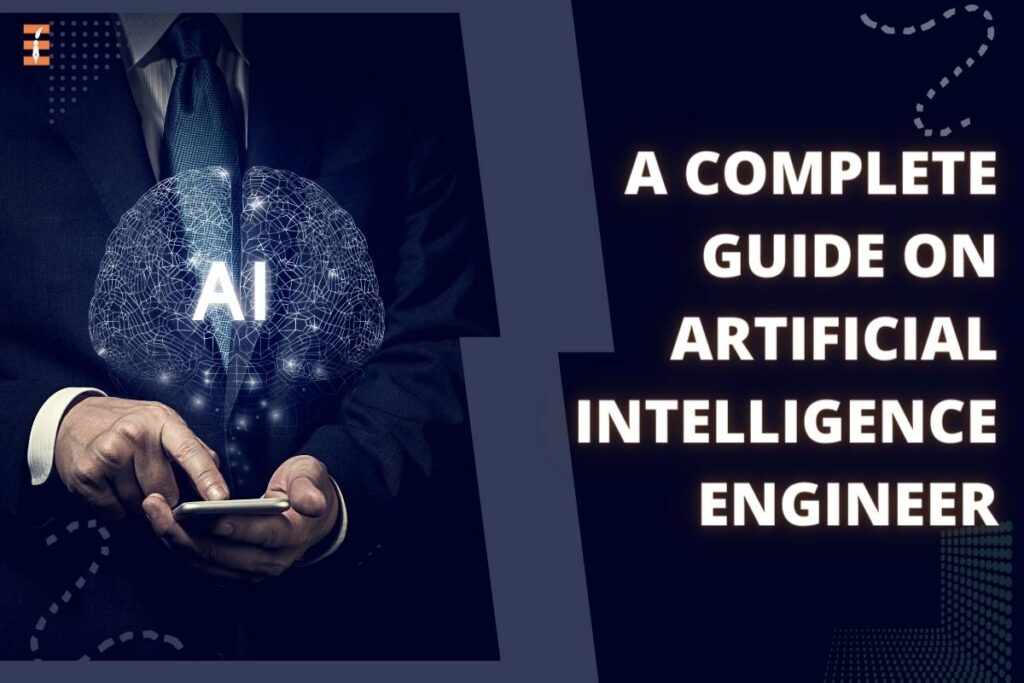In the rapidly evolving landscape of technology, artificial intelligence (AI) has emerged as a transformative force, shaping industries and influencing the way we interact with the world. Behind the scenes of this technological revolution are skilled professionals known as Artificial Intelligence Engineers. As the demand for AI expertise continues to soar, aspiring engineers find themselves drawn to the captivating field. In this comprehensive guide, we will explore the steps, skills, and insights needed to embark on the journey to becoming an Artificial Intelligence Engineer.
Here are Comprehensive Guide To Navigating the Path to Becoming an Artificial Intelligence Engineer:
1. Understanding the Role of an Artificial Intelligence Engineer
Before delving into the pathway, it’s crucial to understand the role of an AI engineer. These professionals design, build, and deploy AI systems that can perform tasks requiring human-like intelligence. From natural language processing to computer vision, AI engineers work across diverse domains, contributing to advancements in healthcare, finance, education, and beyond.
2. Educational Prerequisites
The foundation for a career in AI often begins with a strong educational background. Most AI engineers possess at least a bachelor’s degree in computer science, information technology, or a related field. However, the field is dynamic, and many engineers pursue advanced degrees (master’s or Ph.D.) for an in-depth understanding of AI algorithms, machine learning (ML), and deep learning.
3. Building a Solid Foundation in Programming
Proficiency in programming languages forms the bedrock of an artificial intelligence engineer skill set. Languages such as Python, Java, C++, and R are commonly used in AI development. Python, in particular, has become the de facto language for AI due to its readability, extensive libraries (such as TensorFlow and PyTorch), and widespread community support. Aspiring AI engineers should focus on mastering these languages and gaining hands-on experience in coding.
4. Grasping the Basics of Mathematics and Statistics
AI and machine learning heavily rely on mathematical and statistical principles. A solid understanding of linear algebra, calculus, probability, and statistics is imperative for comprehending the algorithms that power AI systems. Online courses, textbooks, and specialized programs are available to help individuals reinforce their mathematical foundations.
5. Diving into Machine Learning and Deep Learning

Machine learning is the heart of artificial intelligence engineering, and a comprehensive knowledge of ML algorithms is crucial. Understanding supervised and unsupervised learning, reinforcement learning, and clustering techniques is essential. Additionally, delving into deep learning, a subset of ML will provide insights into neural networks, convolutional neural networks (CNNs), and recurrent neural networks (RNNs).
6. Acquiring Practical Experience
Theoretical knowledge is incomplete without hands-on experience. Aspiring AI engineers should engage in practical projects, leveraging datasets and applying machine learning algorithms to real-world problems. Platforms like Kaggle offer a collaborative environment for data science and machine learning competitions, providing an opportunity to work on diverse projects and learn from the global AI community.
7. Exploring Specializations within AI
AI is a vast field with numerous specializations. Depending on interests and career goals, individuals can explore areas such as natural language processing (NLP), computer vision, robotics, and reinforcement learning. Specialized knowledge enhances an engineer’s expertise and opens doors to unique opportunities within the AI landscape.
8. Mastering AI Frameworks and Tools
Proficiency in popular AI frameworks and tools is essential for efficient development. TensorFlow and PyTorch are widely used for deep learning projects, while scikit-learn is a go-to library for ML tasks. Understanding how to leverage these tools and frameworks optimally enhances an AI engineer’s productivity and effectiveness.
9. Staying Updated on Industry Trends

The field of artificial intelligence engineering is dynamic, with new developments and breakthroughs occurring regularly. Continuous learning is a necessity, and staying updated on industry trends, attending conferences, and participating in online forums are essential for remaining at the forefront of AI advancements.
10. Cultivating Soft Skills
In addition to technical expertise, AI engineers benefit from strong soft skills. Effective communication, collaboration, and problem-solving abilities are critical, especially when working in interdisciplinary teams. AI projects often involve collaboration with domain experts, and the ability to convey complex concepts is invaluable.
11. Networking and Building a Portfolio
Networking within the AI community is pivotal for career growth. Attending conferences, joining online forums, and participating in AI-related events provide opportunities to connect with professionals, researchers, and potential mentors. Building a portfolio showcasing projects and contributions is also crucial for demonstrating practical skills to prospective employers.
12. Securing Internships and Entry-Level Positions
Gaining practical experience through internships or entry-level positions is a crucial step in an AI engineer’s journey. These opportunities provide exposure to real-world projects, mentorship from experienced professionals, and insights into industry practices. Internships also serve as a pathway to securing full-time positions within the artificial intelligence engineer landscape.
13. Considering Advanced Degrees and Certifications
While not mandatory, pursuing advanced degrees or certifications can enhance an AI engineer’s credentials. Many universities and online platforms offer specialized programs in AI and machine learning. Certifications from reputable institutions validate skills and can be beneficial when seeking employment or career advancement.
14. Adapting to Ethical and Responsible AI Practices

As AI engineers contribute to creating intelligent systems, a strong commitment to ethical and responsible AI practices is essential. Understanding the implications of AI on society, privacy, and bias is crucial. Engineers should actively engage in discussions surrounding ethical considerations in AI development and strive to implement responsible AI solutions.
Conclusion: A Journey of Continuous Learning
Becoming an Artificial Intelligence Engineer is a journey of continuous learning and adaptation. The field’s dynamic nature requires professionals to stay agile, embrace emerging technologies, and contribute to the ethical evolution of AI. As demand for AI expertise continues to grow, aspiring engineers equipped with a strong foundation, practical experience, and a commitment to ongoing learning will find themselves at the forefront of innovation in this exciting and ever-evolving field.
Also Read: Utilizing Artificial Intelligence For Assessing Student Achievement

